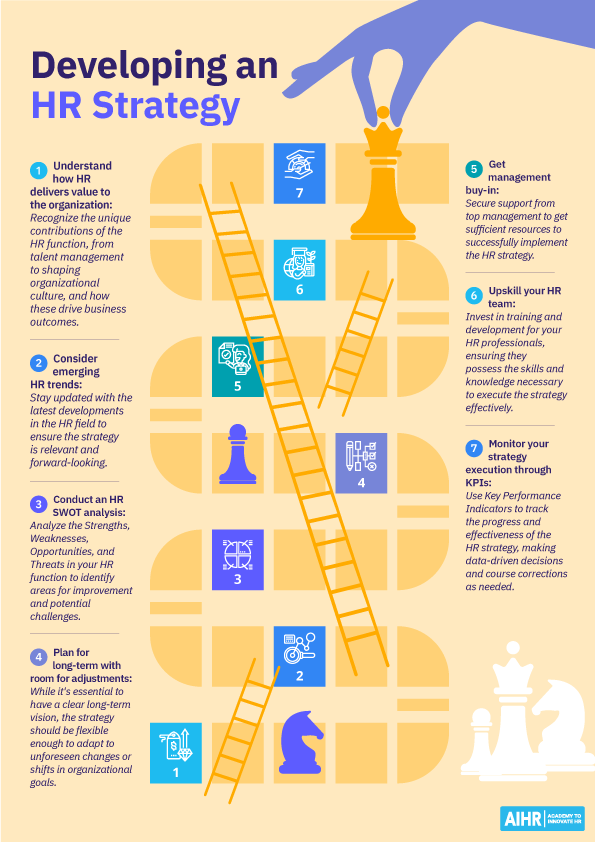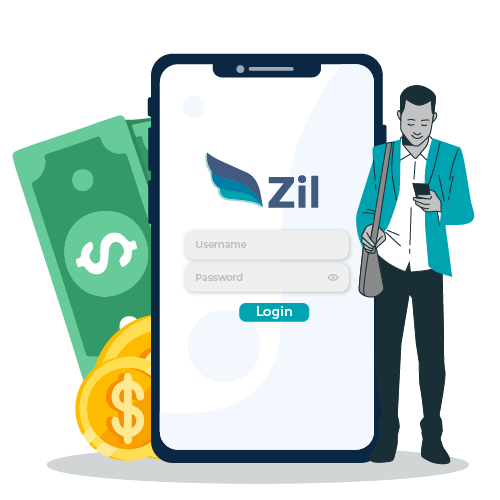Should I See a Doctor After a Car Accident?
If you’ve been in a car accident, even a minor one, it’s crucial to seek medical attention promptly. A doctor can assess your injuries and determine if you need treatment. In some cases, injuries may not be immediately apparent, so it’s essential to get checked out even if you feel okay.
When to See a Doctor After a Car Accident
There are several signs that indicate you should see a doctor after a car accident. These include:
- Any pain, no matter how minor.
- Swelling, bruising, or discoloration.
- Headaches, dizziness, or nausea.
- Difficulty breathing or chest pain.
- Abdominal pain or tenderness.
- Confusion, disorientation, or memory loss.
- Numbness or tingling in your hands or feet.
- Any other symptoms that concern you.
Even if you don’t have any symptoms, it’s still a good idea to see a doctor after a car accident. Some injuries, such as whiplash, may not show up for days or even weeks after the accident.
Getting Medical Attention
If you need medical attention after a car accident, there are several options available to you:
- Go to the emergency room.
- Visit an urgent care center.
- See your primary care physician.
- Call an ambulance.
The best option for you will depend on the severity of your injuries. If you have any life-threatening injuries, such as chest pain or difficulty breathing, call 911 immediately.
Should I See a Doctor After a Car Accident?
After a car accident, your first instinct may be to brush it off and assume everything’s fine. But even if you don’t feel any pain or notice any visible injuries, it’s crucial to consider seeking medical attention. Here are some signs that you should see a doctor after a car accident:
Immediate Medical Attention
If there are visible injuries, severe pain, or loss of consciousness, seek immediate medical attention through 911 or the emergency department. These are clear signs that you need medical help right away.
Delayed Symptoms
Sometimes, symptoms of a car accident may not appear immediately. These can include:
- Headaches or dizziness
- Neck or back pain
- Nausea or vomiting
- Memory problems
- Fatigue or weakness
If you experience any of these symptoms, it’s important to see a doctor. They could indicate an underlying injury that needs treatment.
Psychological Impact
Car accidents can have a significant psychological impact, even if you don’t suffer any physical injuries. Symptoms can include:
- Anxiety or panic attacks
- Depression or mood swings
- Sleep problems
- Difficulty concentrating
- Irritability or aggression
If you’re struggling with any of these symptoms, talk to a mental health professional. They can help you cope with the emotional effects of the accident.
Legal Considerations
Seeking medical attention after a car accident is also important for legal reasons. A doctor’s report can document your injuries and support your claim for compensation. It can also help you avoid disputes with insurance companies.
In Conclusion
Don’t ignore the signs that you need to see a doctor after a car accident. Even if you don’t feel any pain or notice any visible injuries, it’s important to get checked out. Remember, the sooner you seek medical attention, the better your chances of getting the treatment you need to recover and protect your legal rights.
Should I See a Doctor After a Car Accident?
After a car accident, it’s crucial to prioritize your health. While some injuries may be immediately apparent, others can take time to manifest. Here’s a guide to help you determine when to seek medical attention.
Delayed Symptoms
Even if you don’t experience any initial symptoms, it’s essential to monitor your condition closely. Some injuries, like whiplash or concussions, can take days or even weeks to surface. These delayed symptoms may include pain, stiffness, headaches, dizziness, fatigue, and cognitive problems. If you experience any of these symptoms, don’t hesitate to see a doctor.
Whiplash, a common injury caused by a sudden force to the head, can result in neck pain, headaches, and decreased range of motion. Symptoms may not appear for several days post-accident, so it’s vital to be proactive in seeking medical attention.
Concussions, another potential delayed symptom, can cause disorientation, confusion, and nausea. These symptoms can be subtle at first, but they can worsen over time. If you suspect you have a concussion, seeking immediate medical attention is essential to prevent further damage.
Remember, it’s better to be safe than sorry. If you have any concerns about your health after a car accident, consulting with a doctor is always the best course of action.
Should I See a Doctor After a Car Accident?
After a car accident, it’s essential to assess your health thoroughly. Even if you don’t think you’re injured, it’s crucial to get checked out by a doctor. Some injuries, such as whiplash or a concussion, may take time to manifest symptoms. Seeking medical attention promptly can help prevent long-term health problems.
Potential Injuries
Car accidents can cause a wide range of injuries, from minor cuts and bruises to severe trauma. Common injuries include:
- Whiplash
- Concussion
- Broken bones
- Internal bleeding
- Traumatic brain injury (TBI)
Whiplash, a neck injury caused by a sudden, forceful back-and-forth movement of the head, is a common complaint after car accidents. Symptoms may include neck pain, headaches, dizziness, and fatigue. If you experience any of these symptoms, it’s important to see a doctor for assessment and treatment.
Delayed Symptoms
Some injuries, such as a concussion or internal bleeding, may not show symptoms immediately. A concussion is a head injury that can cause a range of symptoms, including headache, dizziness, nausea, and confusion. Internal bleeding can be life-threatening if not treated promptly.
It’s crucial to seek medical attention promptly after a car accident, even if you don’t feel injured. A doctor can perform a thorough examination and tests to rule out any hidden injuries or delayed symptoms.
Seeking Medical Attention
If you have been involved in a car accident, it’s essential to seek medical attention as soon as possible. Here are some signs that indicate you should see a doctor immediately:
- Any pain or discomfort
- Headache, dizziness, or confusion
- Nausea or vomiting
- Difficulty breathing
- Bleeding or bruising
- Loss of consciousness
Seeking medical attention promptly can help prevent long-term health problems and ensure your well-being after a car accident.
Should I See a Doctor After a Car Accident?
If you’re involved in a car accident, even a minor one, it’s important to get checked out by a doctor. While some injuries may not be immediately apparent, they can develop over time. Seeing a doctor ensures that your injuries are properly diagnosed and treated, preventing further complications.
Insurance Purposes
Seeking medical attention creates a medical record that documents your injuries. This record can be invaluable for insurance claims and legal proceedings. The documentation can help prove the extent of your injuries and their connection to the accident. Without a medical record, it may be more difficult to obtain compensation for damages.
Legal Proceedings
If you decide to pursue legal action following an accident, a medical record can strengthen your case. The record provides objective evidence of your injuries and can help establish liability. A doctor’s testimony may also be helpful in court.
Personal Injury Claims
A medical record is essential if you’re filing a personal injury claim. The record will document your injuries, treatment costs, and any lost wages as a result of the accident. Without this documentation, it may be difficult to prove your damages and obtain fair compensation.
Protects Your Health
Seeing a doctor after a car accident is not only important for insurance and legal purposes, but also for your own health. A doctor can assess your injuries and determine if you need further treatment. Even if you don’t feel any pain, you could have underlying injuries that require attention. Delaying medical care can lead to serious health problems down the road.
Conclusion
The decision of whether or not to see a doctor after a car accident is a personal one. However, there are many compelling reasons to get checked out, including insurance purposes, legal proceedings, personal injury claims, and protecting your health. Don’t hesitate to seek medical attention after an accident, even if you feel okay. Your health and well-being should be your top priority.
Should I See a Doctor After a Car Accident?
After a car accident, your adrenaline is pumping, and you might not be sure if you’re injured. But even if you don’t feel any pain right away, it’s important to be seen by a doctor as soon as possible. Here are a few reasons why:
Getting medical attention promptly can document your injuries for insurance purposes. Medical records can provide objective evidence of the extent of your injuries, which can be crucial in proving your case if you need to file a claim.
Some injuries don’t show up right away. For example, you might not notice a concussion or whiplash until hours or even days after the accident. Seeing a doctor can help you get the treatment you need before these injuries become more severe.
A doctor can also make sure that you’re not at risk for any long-term complications. For example, if you have a head injury, a doctor can check for signs of bleeding or swelling that could lead to life-threatening problems.
Legal Implications
Failing to seek medical attention can potentially impact your ability to receive compensation or prove the extent of your injuries in case of a legal dispute. Insurance companies may argue that you weren’t injured if you didn’t see a doctor. And if you do need to file a lawsuit, a lack of medical records can make it difficult to prove the severity of your injuries.
In some cases, failing to seek medical attention can even be considered contributory negligence. This means that you could be partially responsible for your own injuries, which could reduce the amount of compensation you’re entitled to.
What to Expect at the Doctor’s Office
When you see a doctor after a car accident, they will likely ask you about your symptoms and perform a physical exam. They may also order imaging tests, such as X-rays or MRI scans, to look for any hidden injuries.
If you are experiencing serious injuries, you may be referred to a specialist for further treatment. For example, if you have a head injury, you may be referred to a neurologist. Or if you have a broken bone, you may be referred to an orthopedic surgeon.
When to Go to the Emergency Room
If you have any of the following symptoms, you should go to the emergency room immediately:
- Loss of consciousness
- Confusion or disorientation
- Severe pain
- Numbness or tingling
- Difficulty breathing
- Open wounds
- Bleeding that doesn’t stop
Conclusion
If you’ve been in a car accident, it’s important to see a doctor as soon as possible, even if you don’t feel injured. A doctor can check for hidden injuries, document your injuries for insurance purposes, and make sure that you’re not at risk for any long-term complications.
Should I See a Doctor After a Car Accident?
If you’ve been involved in a car accident, even a seemingly minor one, it’s crucial to consider seeking medical attention. While some injuries may be apparent immediately, others can take days or even weeks to manifest.
Benefits of Medical Evaluation
A thorough medical evaluation can provide a clear picture of your injuries and their severity. It allows healthcare professionals to:
- Identify Hidden Injuries: Accidents can cause internal bleeding, fractures, and organ damage that are not always apparent from external examination. A medical evaluation can detect these injuries early on.
- Provide Proper Treatment: Based on the evaluation findings, doctors can prescribe appropriate treatments to address your injuries and prevent further complications.
- Document Injuries for Insurance: A medical report serves as documented evidence of your injuries, which is essential for insurance claims and legal purposes.
- Reduce Risk of Long-Term Effects: Early medical attention can minimize the likelihood of developing chronic pain, disability, or other long-term health problems.
- Peace of Mind: Knowing that you have received a thorough medical evaluation can provide peace of mind and reduce anxiety about your health.
Signs You Should See a Doctor
While not all accidents require a medical evaluation, there are certain signs that indicate it’s necessary:
- Pain or Discomfort: Persistent pain, numbness, or tingling in any part of your body warrants medical attention.
- Headache or Dizziness: Head injuries can have delayed symptoms, so it’s important to seek medical assessment promptly.
- Trouble Moving or Breathing: Difficulty with movement or shortness of breath can indicate injuries to your musculoskeletal system or lungs.
- Bruises or Swelling: Large or persistent bruises and swelling may signal underlying injuries or internal bleeding.
- Cognitive Changes: Confusion, memory loss, or difficulty concentrating can be signs of a head injury.
- Abdominal Pain or Tenderness: Stomach pain, nausea, or tenderness may suggest abdominal injuries that require medical evaluation.
- Emotional Distress: Car accidents can be traumatic, and experiencing ongoing emotional distress or anxiety is a valid reason to seek professional help.




Leave a Reply